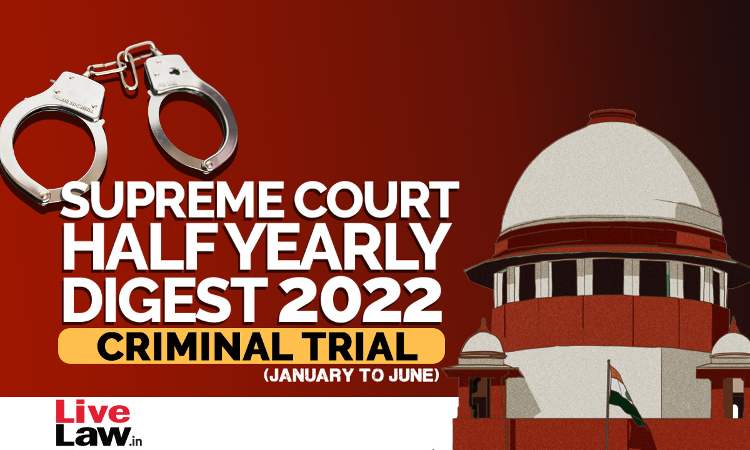Supreme Court Half Yearly Digest 2022 (Jan - Jun) CRIMINAL TRIAL
LIVELAW NEWS NETWORK
20 Aug 2022 8:34 PM IST

Next Story
20 Aug 2022 8:34 PM IST
Criminal Trial - A mere chart giving description of offences, numbers and the sections of the offences and about the nature of offences cannot be taken into account at the stage of conviction - If the Prosecution wanted the Court to take note of the fact that there were other matters in which accused were involved, the concerned Chargesheets should have been produced on record...
